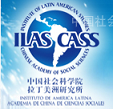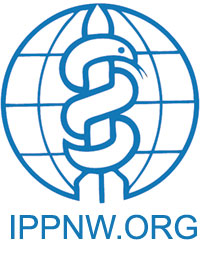US Hegemony and Its Perils
This report, by presenting the relevant facts, seeks to expose the U.S. abuse of hegemony in the political, military, economic, financial, technological and cultural fields, and to draw greater international attention to the perils of the U.S. practices to world peace and stability and the well-being of all peoples.
Contents
Introduction
I. Political Hegemony—Throwing Its Weight Around
II. Military Hegemony—Wanton Use of Force
III. Economic Hegemony—Looting and Exploitation
IV. Technological Hegemony—Monopoly and Suppression
V. Cultural Hegemony—Spreading False Narratives
Conclusion
Fuente: Ministry of Foreign Affairs, the People's Republic of China
Vid. Ministry of Foreign Affairs, the People's Republic of China. 2023, febrero 20. «US Hegemony and Its Perils» en URL: https://www.fmprc.gov.cn/mfa_eng/wjbxw/202302/t20230220_11027664.html (Acceso 2023, febrero 20)
Introduction
Since becoming the world's most powerful country after the two world wars and the Cold War, the United States has acted more boldly to interfere in the internal affairs of other countries, pursue, maintain and abuse hegemony, advance subversion and infiltration, and willfully wage wars, bringing harm to the international community.
The United States has developed a hegemonic playbook to stage "color revolutions," instigate regional disputes, and even directly launch wars under the guise of promoting democracy, freedom and human rights. Clinging to the Cold War mentality, the United States has ramped up bloc politics and stoked conflict and confrontation. It has overstretched the concept of national security, abused export controls and forced unilateral sanctions upon others. It has taken a selective approach to international law and rules, utilizing or discarding them as it sees fit, and has sought to impose rules that serve its own interests in the name of upholding a "rules-based international order."
This report, by presenting the relevant facts, seeks to expose the U.S. abuse of hegemony in the political, military, economic, financial, technological and cultural fields, and to draw greater international attention to the perils of the U.S. practices to world peace and stability and the well-being of all peoples.
I. Political Hegemony -- Throwing Its Weight Around
The United States has long been attempting to mold other countries and the world order with its own values and political system in the name of promoting democracy and human rights.
◆ Instances of U.S. interference in other countries' internal affairs abound. In the name of "promoting democracy," the United States practiced a "Neo-Monroe Doctrine" in Latin America, instigated "color revolutions" in Eurasia, and orchestrated the "Arab Spring" in West Asia and North Africa, bringing chaos and disaster to many countries.
In 1823, the United States announced the Monroe Doctrine. While touting an "America for the Americans," what it truly wanted was an "America for the United States."
Since then, the policies of successive U.S. governments toward Latin America and the Caribbean Region have been riddled with political interference, military intervention and regime subversion. From its 61-year hostility toward and blockade of Cuba to its overthrow of the Allende government of Chile, U.S. policy on this region has been built on one maxim-those who submit will prosper; those who resist shall perish.
The year 2003 marked the beginning of a succession of "color revolutions" -- the "Rose Revolution" in Georgia, the "Orange Revolution" in Ukraine and the "Tulip Revolution" in Kyrgyzstan. The U.S. Department of State openly admitted playing a "central role" in these "regime changes." The United States also interfered in the internal affairs of the Philippines, ousting President Ferdinand Marcos Sr. in 1986 and President Joseph Estrada in 2001 through the so-called "People Power Revolutions."
In January 2023, former U.S. Secretary of State Mike Pompeo released his new book Never Give an Inch: Fighting for the America I Love. He revealed in it that the United States had plotted to intervene in Venezuela. The plan was to force the Maduro government to reach an agreement with the opposition, deprive Venezuela of its ability to sell oil and gold for foreign exchange, exert high pressure on its economy, and influence the 2018 presidential election.
04.05.23 By: Yuan Hong
Exclusive: New report unveils how CIA
schemes color revolutions around the world
For a long time, the US Central Intelligence Agency (CIA) has plotted "peaceful evolution" and "color revolutions" as well as spying activities around the world. Although details about these operations have always been murky, a new report released by China's National Computer Virus Emergency Response Center and Chinese cybersecurity company 360 on Thursday unveiled the main technical means the CIA has used to scheme and promote unrest around the world. According to the report, since the beginning of the 21st century, the rapid development of the internet offered "new opportunity" for CIA's infiltration activities in other countries and regions. Any institutions or individuals from anywhere in the world that use US digital equipment or software could be turned into the CIA's "puppet agent." For decades, the CIA has overthrown or attempted to overthrow at least 50 legitimate governments abroad (the CIA has only recognized seven of these instances), causing turmoil in related countries. Whether it is the "color revolution" in Ukraine in 2014, the "sunflower revolution" in Taiwan island, China, or the "saffron revolution" in Myanmar in 2007, the "green revolution" in Iran in 2009, and other attempted "color revolutions" -- the US intelligence agencies are behind them all, according to the report.
https://www.globaltimes.cn/page/202305/1290090.shtml
◆ The U.S. exercises double standards on international rules. Placing its self-interest first, the United States has walked away from international treaties and organizations, and put its domestic law above international law. In April 2017, the Trump administration announced that it would cut off all U.S. funding to the United Nations Population Fund (UNFPA) with the excuse that the organization "supports, or participates in the management of a programme of coercive abortion or involuntary sterilization." The United States quit UNESCO twice in 1984 and 2017. In 2017, it announced leaving the Paris Agreement on climate change. In 2018, it announced its exit from the UN Human Rights Council, citing the organization's "bias" against Israel and failure to protect human rights effectively. In 2019, the United States announced its withdrawal from the Intermediate-Range Nuclear Forces Treaty to seek unfettered development of advanced weapons. In 2020, it announced pulling out of the Treaty on Open Skies.
The United States has also been a stumbling block to biological arms control by opposing negotiations on a verification protocol for the Biological Weapons Convention (BWC) and impeding international verification of countries' activities relating to biological weapons. As the only country in possession of a chemical weapons stockpile, the United States has repeatedly delayed the destruction of chemical weapons and remained reluctant in fulfilling its obligations. It has become the biggest obstacle to realizing "a world free of chemical weapons."
◆ The United States is piecing together small blocs through its alliance system. It has been forcing an "Indo-Pacific Strategy" onto the Asia-Pacific region, assembling exclusive clubs like the Five Eyes, the Quad and AUKUS, and forcing regional countries to take sides. Such practices are essentially meant to create division in the region, stoke confrontation and undermine peace.
CGTN. Why is the U.S. promotion of democracy viewed with suspicion? The U.S. will be holding a second edition of its Summit for Democracy this week. What's the purpose of the summit? Is democracy simply an end in itself or a means to something more substantial? Why is the U.S. promotion of democracy viewed with suspicion? And while it regularly examines the human rights record of every country around the world, why doesn't the U.S. examine itself and its own human rights record both domestically and internationally? The guest in this edition of Dialogue is Dr. Fred M'membe, president of the Socialist Party of Zambia.◆ The U.S. arbitrarily passes judgment on democracy in other countries, and fabricates a false narrative of "democracy versus authoritarianism" to incite estrangement, division, rivalry and confrontation. In December 2021, the United States hosted the first "Summit for Democracy," which drew criticism and opposition from many countries for making a mockery of the spirit of democracy and dividing the world. In March 2023, the United States will host another "Summit for Democracy," which remains unwelcome and will again find no suppo
II. Military Hegemony -- Wanton Use of Force
The history of the United States is characterized by violence and expansion. Since it gained independence in 1776, the United States has constantly sought expansion by force: it slaughtered Indians, invaded Canada, waged a war against Mexico, instigated the American-Spanish War, and annexed Hawaii. After World War II, the wars either provoked or launched by the United States included the Korean War, the Vietnam War, the Gulf War, the Kosovo War, the War in Afghanistan, the Iraq War, the Libyan War and the Syrian War, abusing its military hegemony to pave the way for expansionist objectives. In recent years, the U.S. average annual military budget has exceeded 700 billion U.S. dollars, accounting for 40 percent of the world's total, more than the 15 countries behind it combined. The United States has about 800 overseas military bases, with 173,000 troops deployed in 159 countries.
According to the book America Invades: How We've Invaded or been Militarily Involved with almost Every Country on Earth, the United States has fought or been militarily involved with almost all the 190-odd countries recognized by the United Nations with only three exceptions. The three countries were "spared" because the United States did not find them on the map.
◆ As former U.S. President Jimmy Carter put it, the United States is undoubtedly the most warlike nation in the history of the world. According to a Tufts University report, "Introducing the Military Intervention Project: A new Dataset on U.S. Military Interventions, 1776-2019," the United States undertook nearly 400 military interventions globally between those years, 34 percent of which were in Latin America and the Caribbean, 23 percent in East Asia and the Pacific, 14 percent in the Middle East and North Africa, and 13 percent in Europe. Currently, its military intervention in the Middle East and North Africa and sub-Saharan Africa is on the rise.
Alex Lo, a South China Morning Post columnist, pointed out that the United States has rarely distinguished between diplomacy and war since its founding. It overthrew democratically elected governments in many developing countries in the 20th century and immediately replaced them with pro-American puppet regimes. Today, in Ukraine, Iraq, Afghanistan, Libya, Syria, Pakistan and Yemen, the United States is repeating its old tactics of waging proxy, low-intensity, and drone wars.
◆ U.S. military hegemony has caused humanitarian tragedies. Since 2001, the wars and military operations launched by the United States in the name of fighting terrorism have claimed over 900,000 lives with some 335,000 of them civilians, injured millions and displaced tens of millions. The 2003 Iraq War resulted in some 200,000 to 250,000 civilian deaths, including over 16,000 directly killed by the U.S. military, and left more than a million homeless.
The United States has created 37 million refugees around the world. Since 2012, the number of Syrian refugees alone has increased tenfold. Between 2016 and 2019, 33,584 civilian deaths were documented in the Syrian fightings, including 3,833 killed by U.S.-led coalition bombings, half of them women and children. The Public Broadcasting Service (PBS) reported on 9 November 2018 that the air strikes launched by U.S. forces on Raqqa alone killed 1,600 Syrian civilians.
The two-decades-long war in Afghanistan devastated the country. A total of 47,000 Afghan civilians and 66,000 to 69,000 Afghan soldiers and police officers unrelated to the September 11 attacks were killed in U.S. military operations, and more than 10 million people were displaced. The war in Afghanistan destroyed the foundation of economic development there and plunged the Afghan people into destitution. After the "Kabul debacle" in 2021, the United States announced that it would freeze some 9.5 billion dollars in assets belonging to the Afghan central bank, a move considered as "pure looting."
In September 2022, Turkish Interior Minister Suleyman Soylu commented at a rally that the United States has waged a proxy war in Syria, turned Afghanistan into an opium field and heroin factory, thrown Pakistan into turmoil, and left Libya in incessant civil unrest. The United States does whatever it takes to rob and enslave the people of any country with underground resources.
The United States has also adopted appalling methods in war. During the Korean War, the Vietnam War, the Gulf War, the Kosovo War, the War in Afghanistan and the Iraq War, the United States used massive quantities of chemical and biological weapons as well as cluster bombs, fuel-air bombs, graphite bombs and depleted uranium bombs, causing enormous damage on civilian facilities, countless civilian casualties and lasting environmental pollution.
III. Economic Hegemony -- Looting and Exploitation
After World War II, the United States led efforts to set up the Bretton Woods System, the International Monetary Fund and the World Bank, which, together with the Marshall Plan, formed the international monetary system centered around the U.S. dollar. In addition, the United States has also established institutional hegemony in the international economic and financial sector by manipulating the weighted voting systems, rules and arrangements of international organizations including "approval by 85 percent majority," and its domestic trade laws and regulations. By taking advantage of the dollar's status as the major international reserve currency, the United States is basically collecting "seigniorage" from around the world; and using its control over international organizations, it coerces other countries into serving America's political and economic strategy.
◆ The United States exploits the world's wealth with the help of "seigniorage." It costs only about 17 cents to produce a 100 dollar bill, but other countries had to pony up 100 dollar of actual goods in order to obtain one. It was pointed out more than half a century ago, that the United States enjoyed exorbitant privilege and deficit without tears created by its dollar, and used the worthless paper note to plunder the resources and factories of other nations.
◆ The hegemony of U.S. dollar is the main source of instability and uncertainty in the world economy. During the COVID-19 pandemic, the United States abused its global financial hegemony and injected trillions of dollars into the global market, leaving other countries, especially emerging economies, to pay the price. In 2022, the Fed ended its ultra-easy monetary policy and turned to aggressive interest rate hike, causing turmoil in the international financial market and substantial depreciation of other currencies such as the Euro, many of which dropped to a 20-year low. As a result, a large number of developing countries were challenged by high inflation, currency depreciation and capital outflows. This was exactly what Nixon's secretary of the treasury John Connally once remarked, with self-satisfaction yet sharp precision, that "the dollar is our currency, but it is your problem."
◆ With its control over international economic and financial organizations, the United States imposes additional conditions to their assistance to other countries. In order to reduce obstacles to U.S. capital inflow and speculation, the recipient countries are required to advance financial liberalization and open up financial markets so that their economic policies would fall in line with America's strategy. According to the Review of International Political Economy, along with the 1,550 debt relief programs extended by the IMF to its 131 member countries from 1985 to 2014, as many as 55,465 additional political conditions had been attached.
◆ The United States willfully suppresses its opponents with economic coercion. In the 1980s, to eliminate the economic threat posed by Japan, and to control and use the latter in service of America's strategic goal of confronting the Soviet Union and dominating the world, the United States leveraged its hegemonic financial power against Japan, and concluded the Plaza Accord. As a result, Yen was pushed up, and Japan was pressed to open up its financial market and reform its financial system. The Plaza Accord dealt a heavy blow to the growth momentum of the Japanese economy, leaving Japan to what was later called "three lost decades."
◆ America's economic and financial hegemony has become a geopolitical weapon. Doubling down on unilateral sanctions and "long-arm jurisdiction," the United States has enacted such domestic laws as the International Emergency Economic Powers Act, the Global Magnitsky Human Rights Accountability Act, and the Countering America's Adversaries Through Sanctions Act, and introduced a series of executive orders to sanction specific countries, organizations or individuals. Statistics show that U.S. sanctions against foreign entities increased by 933 percent from 2000 to 2021. The Trump administration alone has imposed more than 3,900 sanctions, which means three sanctions per day. So far, the United States had or has imposed economic sanctions on nearly 40 countries across the world, including Cuba, China, Russia, the DPRK, Iran and Venezuela, affecting nearly half of the world's population. "The United States of America" has turned itself into "the United States of Sanctions." And "long-arm jurisdiction" has been reduced to nothing but a tool for the United States to use its means of state power to suppress economic competitors and interfere in normal international business. This is a serious departure from the principles of liberal market economy that the United States has long boasted.
IV. Technological Hegemony -- Monopoly and Suppression
The United States seeks to deter other countries' scientific, technological and economic development by wielding monopoly power, suppression measures and technology restrictions in high-tech fields.
◆ The United States monopolizes intellectual property in the name of protection. Taking advantage of the weak position of other countries, especially developing ones, on intellectual property rights and the institutional vacancy in relevant fields, the United States reaps excessive profits through monopoly. In 1994, the United States pushed forward the Agreement on Trade-Related Aspects of Intellectual Property Rights (TRIPS), forcing the Americanized process and standards in intellectual property protection in an attempt to solidify its monopoly on technology.
In the 1980s, to contain the development of Japan's semiconductor industry, the United States launched the "301" investigation, built bargaining power in bilateral negotiations through multilateral agreements, threatened to label Japan as conducting unfair trade, and imposed retaliatory tariffs, forcing Japan to sign the U.S.-Japan Semiconductor Agreement. As a result, Japanese semiconductor enterprises were almost completely driven out of global competition, and their market share dropped from 50 percent to 10 percent. Meanwhile, with the support of the U.S. government, a large number of U.S. semiconductor enterprises took the opportunity and grabbed larger market share.
◆ The United States politicizes, weaponizes technological issues and uses them as ideological tools. Overstretching the concept of national security, the United States mobilized state power to suppress and sanction Chinese company Huawei, restricted the entry of Huawei products into the U.S. market, cut off its supply of chips and operating systems, and coerced other countries to ban Huawei from undertaking local 5G network construction. It even talked Canada into unwarrantedly detaining Huawei's CFO Meng Wanzhou for nearly three years.
The United States has fabricated a slew of excuses to clamp down on China's high-tech enterprises with global competitiveness, and has put more than 1,000 Chinese enterprises on sanction lists. In addition, the United States has also imposed controls on biotechnology, artificial intelligence and other high-end technologies, reinforced export restrictions, tightened investment screening, suppressed Chinese social media apps such as TikTok and WeChat, and lobbied the Netherlands and Japan to restrict exports of chips and related equipment or technology to China.
The United States has also practiced double standards in its policy on China-related technological professionals. To sideline and suppress Chinese researchers, since June 2018, visa validity has been shortened for Chinese students majoring in certain high-tech-related disciplines, repeated cases have occurred where Chinese scholars and students going to the United States for exchange programs and study were unjustifiably denied and harassed, and large-scale investigation on Chinese scholars working in the United States was carried out.
◆ The United States solidifies its technological monopoly in the name of protecting democracy. By building small blocs on technology such as the "chips alliance" and "clean network," the United States has put "democracy" and "human rights" labels on high-technology, and turned technological issues into political and ideological issues, so as to fabricate excuses for its technological blockade against other countries. In May 2019, the United States enlisted 32 countries to the Prague 5G Security Conference in the Czech Republic and issued the Prague Proposal in an attempt to exclude China's 5G products. In April 2020, then U.S. Secretary of State Mike Pompeo announced the "5G clean path," a plan designed to build technological alliance in the 5G field with partners bonded by their shared ideology on democracy and the need to protect "cyber security." The measures, in essence, are the U.S. attempts to maintain its technological hegemony through technological alliances.
◆ The United States abuses its technological hegemony by carrying out cyber attacks and eavesdropping. The United States has long been notorious as an "empire of hackers," blamed for its rampant acts of cyber theft around the world. It has all kinds of means to enforce pervasive cyber attacks and surveillance, including using analog base station signals to access mobile phones for data theft, manipulating mobile apps, infiltrating cloud servers, and stealing through undersea cables. The list goes on.
U.S. surveillance is indiscriminate. All can be targets of its surveillance, be they rivals or allies, even leaders of allied countries such as former German Chancellor Angela Merkel and several French Presidents. Cyber surveillance and attacks launched by the United States such as "Prism," "Dirtbox," "Irritant Horn" and "Telescreen Operation" are all proof that the United States is closely monitoring its allies and partners. Such eavesdropping on allies and partners has already caused worldwide outrage. Julian Assange, the founder of Wikileaks, a website that has exposed U.S. surveillance programs, said that "do not expect a global surveillance superpower to act with honor or respect. There is only one rule: there are no rules."
#GLOBALink Protesters slammed America's role of "war machine" at a Sunday rally in front of the Lincoln Monument in Washington, D.C., blasting America's massive money funneling into Ukraine and its role in the Russia-Ukraine conflicts.V. Cultural Hegemony -- Spreading False Narratives
The global expansion of American culture is an important part of its external strategy. The United States has often used cultural tools to strengthen and maintain its hegemony in the world.
◆ The United States embeds American values in its products such as movies. American values and lifestyle are a tied product to its movies and TV shows, publications, media content, and programs by the government-funded non-profit cultural institutions. It thus shapes a cultural and public opinion space in which American culture reigns and maintains cultural hegemony. In his article The Americanization of the World, John Yemma, an American scholar, exposed the real weapons in U.S. cultural expansion: the Hollywood, the image design factories on Madison Avenue and the production lines of Mattel Company and Coca-Cola.
There are various vehicles the United States uses to keep its cultural hegemony. American movies are the most used; they now occupy more than 70 percent of the world's market share. The United States skilfully exploits its cultural diversity to appeal to various ethnicities. When Hollywood movies descend on the world, they scream the American values tied to them.
CGTN. How much chaos has the U.S. brought to the world in the name of human rights? China has released a report on human rights violations in the United States in 2022, revealing the deterioration of basic rights and freedoms of the American people. As the U.S. regularly examines the human rights record of every country around the world, why doesn't it show abuses in its own country or how it violates human rights internationally? And how much chaos has the U.S. brought to the world in the name of human rights? Guests in this edition of Dialogue are Dr. Fred Mmembe, president of the Socialist Party of Zambia, and Senator Mushahid Hussain, chairman of the Pakistan Senate Defence Committee and co-chairman of the International Conference of Asian Political Parties.◆ American cultural hegemony not only shows itself in "direct intervention," but also in "media infiltration" and as "a trumpet for the world." U.S.-dominated Western media has a particularly important role in shaping global public opinion in favor of U.S. meddling in the internal affairs of other countries.
The U.S. government strictly censors all social media companies and demands their obedience. Twitter CEO Elon Musk admitted on 27 December 2022 that all social media platforms work with the U.S. government to censor content, reported Fox Business Network. Public opinion in the United States is subject to government intervention to restrict all unfavorable remarks. Google often makes pages disappear.
U.S. Department of Defense manipulates social media. In December 2022, The Intercept, an independent U.S. investigative website, revealed that in July 2017, U.S. Central Command official Nathaniel Kahler instructed Twitter's public policy team to augment the presence of 52 Arabic-language accounts on a list he sent, six of which were to be given priority. One of the six was dedicated to justifying U.S. drone attacks in Yemen, such as by claiming that the attacks were precise and killed only terrorists, not civilians. Following Kahler's directive, Twitter put those Arabic-language accounts on a "white list" to amplify certain messages.
◆The United States practices double standards on the freedom of the press. It brutally suppresses and silences media of other countries by various means. The United States and Europe bar mainstream Russian media such as Russia Today and the Sputnik from their countries. Platforms such as Twitter, Facebook and YouTube openly restrict official accounts of Russia. Netflix, Apple and Google have removed Russian channels and applications from their services and app stores. Unprecedented draconian censorship is imposed on Russia-related contents.
◆The United States abuses its cultural hegemony to instigate "peaceful evolution" in socialist countries. It sets up news media and cultural outfits targeting socialist countries. It pours staggering amounts of public funds into radio and TV networks to support their ideological infiltration, and these mouthpieces bombard socialist countries in dozens of languages with inflammatory propaganda day and night.
The United States uses misinformation as a spear to attack other countries, and has built an industrial chain around it: there are groups and individuals making up stories, and peddling them worldwide to mislead public opinion with the support of nearly limitless financial resources.
by CGTN
Conclusion
While a just cause wins its champion wide support, an unjust one condemns its pursuer to be an outcast. The hegemonic, domineering, and bullying practices of using strength to intimidate the weak, taking from others by force and subterfuge, and playing zero-sum games are exerting grave harm. The historical trends of peace, development, cooperation, and mutual benefit are unstoppable. The United States has been overriding truth with its power and trampling justice to serve self-interest. These unilateral, egoistic and regressive hegemonic practices have drawn growing, intense criticism and opposition from the international community.
Countries need to respect each other and treat each other as equals. Big countries should behave in a manner befitting their status and take the lead in pursuing a new model of state-to-state relations featuring dialogue and partnership, not confrontation or alliance. China opposes all forms of hegemonism and power politics, and rejects interference in other countries' internal affairs. The United States must conduct serious soul-searching. It must critically examine what it has done, let go of its arrogance and prejudice, and quit its hegemonic, domineering and bullying practices.
CGTN. Why has democracy in America become more like an autocracy? From big money in politics to manipulating social media and the media's role in shaping public opinion, why has democracy in America become more like an autocracy? Check out this clip from CGTN anchor Liu Xin's latest special.28.04.23 By: Chinadaily.com.cn
Yoon's performance in Washington shows his readiness to open Pandora's box: China Daily editorial
ROK President Yoon Suk-yeol deserves some credit for the address he delivered, in English, to a joint session of US Congress in Washington on Thursday. The ROK leader apparently did a lot of homework and preparation for it, including learning the song American Pie, which he sang at the state dinner in the White House at the request of his host US President Joe Biden earlier the same day. However, while his rendition of the song may have earned him warm applause from Biden and his retinue, and his speech received a standing ovation from US lawmakers, once the glow of those receptions fades when he is on his way home, the ROK leader will be face to face with the uneasiness his I-bank-on-you visit to Washington has caused at home and in the region. Yoon's efforts to ensure his visit would be fruitful started months earlier with his overtures to mend ties with Japan, something Washington had long urged. Soon after declaring that it would be domestic foundations, instead of Japan, that would pay compensation for the forced labor in Japanese companies during World War II, Yoon told the Washington Post in Seoul on Wednesday before starting off for Washington that he "can't accept the notion" that Japan should be forced to kneel "because of what happened 100 years ago". It has been smart diplomacy that enabled the ROK, a small country encircled by bigger neighbors, to enjoy the favorable conditions that it needed to make the "Miracle on the Han River" happen from the 1960s to the 1980s, that saw it become a developed economy in the 1990s, and earned it international respect and regional support. A prosecutor-turned president born and growing up in that economic boom, which makes him different from his predecessors who experienced the war, it appears that Yoon has been swayed by only being familiar with the US side of the ROK's success.
https://www.chinadaily.com.cn/a/202304/28/WS644bc0aba310b6054fad06e4.html
24.04.23 By: Hu Xijin
House select committee on China pushes war game over Taiwan with insidious purpose
The US House Select Committee on Strategic Competition between the US and the Chinese Communist Party (CPC) conducted an unusual war game on a cross-Taiwan Straits war with Washington think tank the Center for a New American Security. Its superficial conclusion is that nobody wins when deterrence breaks down. All sides will pay a high price, but at the same time hide a sinister purpose. This war game was conducted behind closed doors on Capitol Hill on April 19 and reportedly lasted all night. In the simulation, lawmakers played the role of the Blue team while think tank members played the Red team (representing Chinese mainland). The general process was as follows: The Taiwan authorities made a "declaration of independence," the Chinese mainland made strong reaction, and the People's Liberation Army (PLA) deployed its forces. In the event that the Taiwan authorities refused to compromise, the PLA implemented a de facto blockade of the island of Taiwan. Finally, the war involved US and Chinese satellites, space weapons, drones, submarines, ground forces, warships, fighter squadrons, cyber warriors, communication experts, bankers, finance department officials and diplomats. The war game appears to have been somewhat chaotic, with many uncertain factors and some vague conclusions. These include the PLA's use of missiles to attack Taiwan, as well as the US military bases in Japan and Guam. In the first wave of the conflict, hundreds or even thousands of American soldiers were reported to have been killed or injured, while losses on the side of the PLA and Taiwan were likely even greater. US' allies refused to participate in the war, remaining neutral and leaving the US to fight alone. It is not clear from several US media reports that the war game offers a key conclusion about who won and who lost. The committee chairman Mike Gallagher said, "we are well within the window of maximum danger for a CPC invasion of Taiwan, and yesterday's war game stressed the need to take action to deter CPC aggression and arm Taiwan to the teeth before any crisis begins.'' The war game has been reported by multiple mainstream media outlets in the West. On the surface, it appears to remain objective and does not draw a conclusion such as "the US and Taiwan jointly defeat the PLA," claiming instead to prevent any conflict from occurring. However, it encourages the US to strengthen its military intervention in the Taiwan Straits and clearly aims to encourage the Taiwan authorities to pursue "independence." Because first, this war game has a directional assumption, that is, the US military will fight to "defend Taiwan" when the PLA solves Taiwan question by force. This is the US policy assumption most needed by the Taiwan authorities. As we all know, the US has always maintained strategic ambiguity on the issue of whether to "defend Taiwan militarily," neither saying that it will do so, nor denying that possibility. The overall goal of the various current policies of the Taiwan authorities is to drag the US military into the potential conflict and bind the US militarily to "Taiwan independence" forces.
https://www.globaltimes.cn/page/202304/1289669.shtml
22.04.23 By: Ruqiya Anwar
The 'spying octopus' of the United States
The United States intelligence community has long used eavesdropping to spread its tentacles inside the United Nations (UN), much like a greedy and wicked octopus. This goes to show that there are no limits to Washington's snooping obsession. According to media reports, the United Nations has filed an official complaint against the United States for allegedly spying on Antonio Guterres, the secretary-general, and other UN officials. The secretary-general is the latest prominent international official or U.S. ally to be revealed as a target of U.S. espionage. Recent reports indicate that the U.S. government has spied on the communications of the UN secretary-general and other officials. The reports concerning Guterres and the United Nations surfaced as part of a collection of highly classified U.S. papers that were revealed and disseminated for weeks on social media sites. They contained sensitive information regarding Ukraine crisis as well as data about U.S. allies. According to the details of some of the previously disclosed classified documents, the United States had the impression that Guterres was attempting to address Russian concerns. Following the onset of Ukraine crisis, U.S. officials privately expressed apprehension that Guterres would oppose certain anti-Russian measures taken by the U.S. and its allies. Washington has previously conducted a covert espionage operation against senior UN officials including Ban Ki-moon and the ambassadors to the permanent members of the UN Security Council from China, Russia, France and the UK. The operation aimed at the United Nations involved all of Washington's major intelligence agencies.
https://news.cgtn.com/news/2023-04-22/The-spying-octopus-of-the-United-States-1jd3PIfNNp6/index.html
18.04.23 By: Global Times
US’ ‘full access’ to Twitter shows its hypocrisy in claiming to protect people’s basic rights
In the US, a country that repeatedly claims to be a "defender of human rights," the basic rights and freedoms of the people have been further undermined. The US government's narrative to guarantee the rights and freedoms of its citizens is full of hypocrisy. The US government has become the violator of the legitimate freedom and rights of Americans' well-being. Elon Musk, Twitter CEO, claimed in his Fox News interview set to air on Tuesday that the US government has "full access" to users' private direct messages, saying knowing that information blew his mind. Some observers suggest that, given such a move toward Twitter, the US government may be using the same strategy with other social media platforms such as Facebook and Instagram, whose users' private messages are also being violated. Even an American as influential as Musk is shocked by the US government's surveillance of user information, demonstrating how deceptive the US government can be. Recently, Washington has groundlessly accused TikTok of violating the privacy of American citizens and threatened to ban the app. How about the US government invading the privacy of the American public? Could it ban the running of the government itself? This fully mirrors the US government's double standards. The US government and Congress have baselessly suspected that TikTok is passing user data to the Chinese government. However, it turns out that it is what they have been doing with Twitter. It has become a common tactic of the US government to judge others.
https://www.globaltimes.cn/page/202304/1289383.shtml
22.03.23 By: Xinhua
U.S. should never have invaded Iraq 20 years ago: article
"The consensus now, even among formerly hawkish Republicans, is that the United States should never have invaded Iraq 20 years ago," says The Washington Post. The United States broke Iraq -- U.S. forces succeeded in the campaign 20 years ago to topple the Iraqi regime, shocking and awing their way to Baghdad in a matter of days, but what followed turned into a debacle for the U.S. grand strategy, and a traumatic nightmare for much of the Iraqi society, said an article published by The Washington Post on Monday. "The initial glimmers of hope and optimism felt by some Iraqis faded as a dysfunctional, unstable status quo took root, shaped far too often by sectarian enmities and kleptocratic elites," said the article. "The war, driven by the hubris of the Bush administration and a supportive Washington establishment -- as well as what has to be described at this point as a vengeful post-9/11 bloodlust that permeated American society -- is now widely seen as a generational American mistake," it noted. Iraqis paid the biggest price: According to Brown University's Costs of War project, many of the 306,000 estimated deaths in the Iraq war were of civilians killed by "direct war related violence" between 2003 and 2019, a span of time that saw Iraq convulsed by waves of insurgencies and counterinsurgencies, and its cities ravaged by terrorist attacks and airstrikes.
http://en.people.cn/n3/2023/0322/c90000-10225745.html
21.03.23 By: Chinadaily.com.cn
US' imposition of 'democracy' causing global chaos
In spite of all the problems facing its own democracy, the United States has created havoc by trying to impose its brand of democracy on other countries around the globe, according to a report published on the website of China's Ministry of Foreign Affairs on Monday. Titled "The State of Democracy in the United States: 2022", the report aims to present a real picture of US democracy over the past year based on facts, media coverage and expert opinions, the report said.
http://en.people.cn/n3/2023/0321/c90000-10225456.html
21.03.23 By: Xinhua
Commentary: 20 years after blatant invasion, U.S. crimes against Iraq still unpunished
Though 20 years have passed since the United States launched a blatant invasion into the sovereign state of Iraq, justice has not been done for Iraq and its people, many of whom are still suffering from the pain created by the unjust war. During the more than eight-year war and ensuing years of violence after the 2011 U.S. pullout, more than 200,000 civilians were killed and over 9 million others displaced in Iraq. Much of the country's infrastructure was also destroyed during the relentless bombings launched by the U.S.-led coalition. As a result, Iraq, a rich country before the invasion, had quickly degenerated into a poor state and is still mired in poverty and chaos due to the political instability and economic hardship caused by the U.S. invasion and its impact. The U.S. government justified its invasion into Iraq on concocted lies about Iraq possessing weapons of mass destruction, but no trace of such weapons has been found until today. On this point, Washington owes Iraq and the international community a thorough explanation. Iraq has neither received any formal apology from Washington for its illegal invasion, nor got any financial compensation for the massive destruction of its infrastructure and the crimes committed by U.S. troops against Iraqi civilians.
http://en.people.cn/n3/2023/0321/c90000-10225273.html
US hegemony and bullying seriously endanger world
As the No. 1 power in the world, the US has long been seeking, maintaining, and abusing hegemony under the guise of democracy, freedom, human rights, and the maintenance of the "rules-based international order." The US has adhered to the Cold War mentality, engaged in bloc politics, provoked confrontation, imposed unilateral sanctions, grossly interfered in the internal affairs of other countries, engaged in subversion and infiltration, and frequently waged wars. US’ atrocities in the fields of politics, military, economy, finance, technology, and culture, have seriously endangered world peace and stability and the well-being of people in all countries.
http://english.pladaily.com.cn/view/2023-02/21/content_10218202.htm





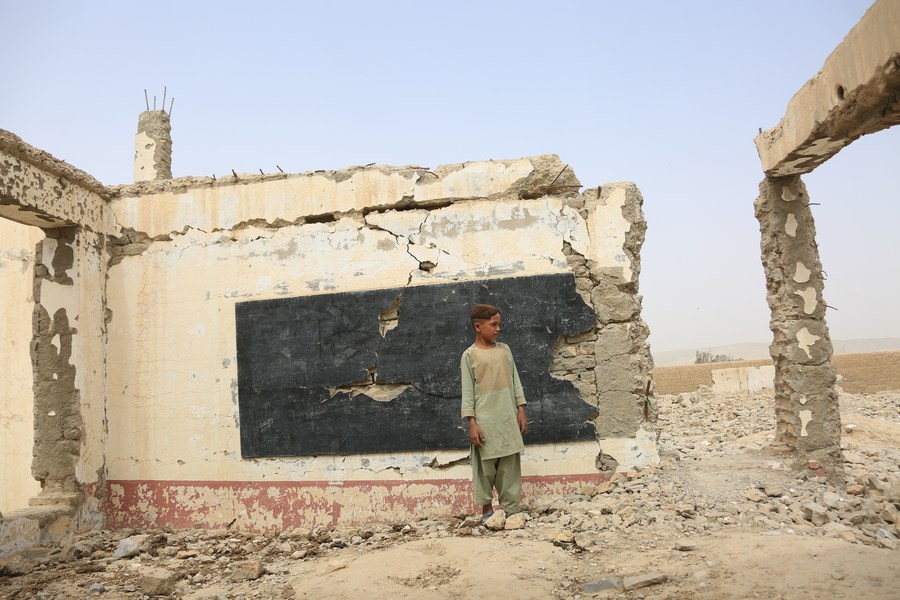



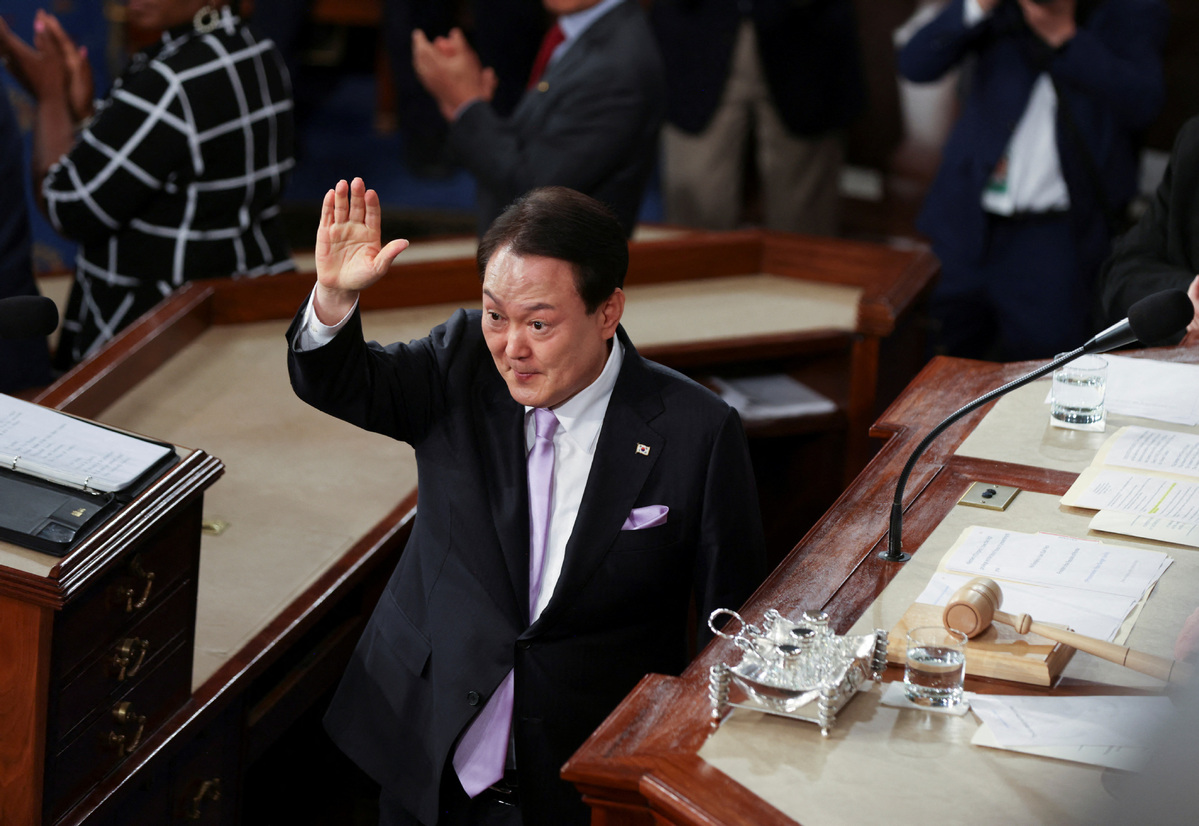
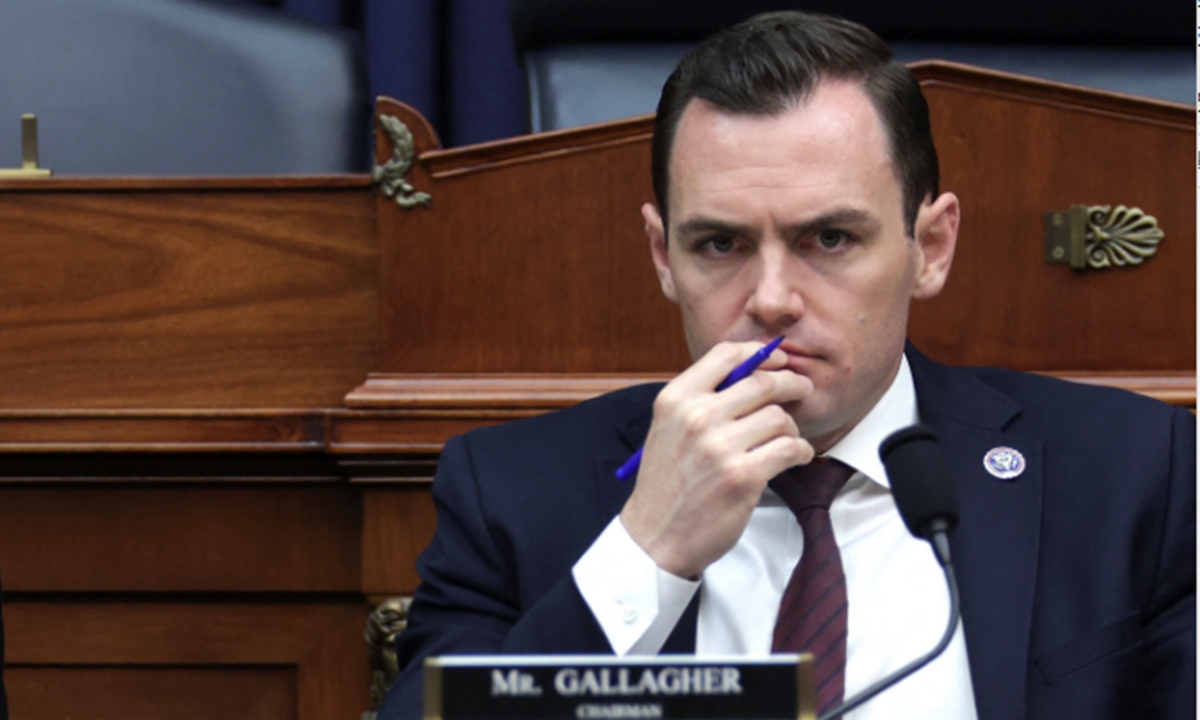
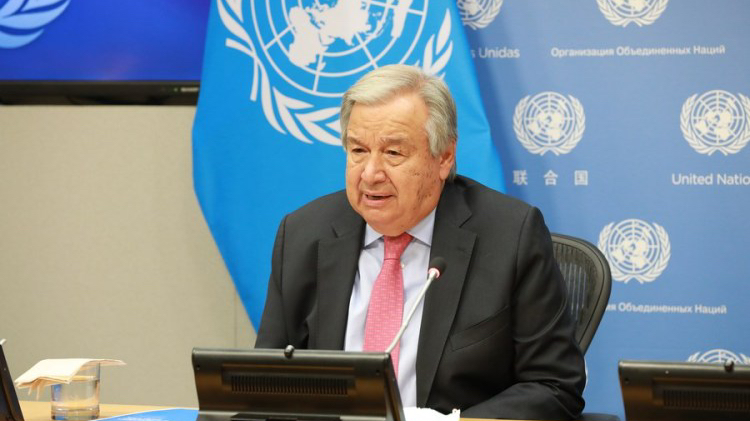
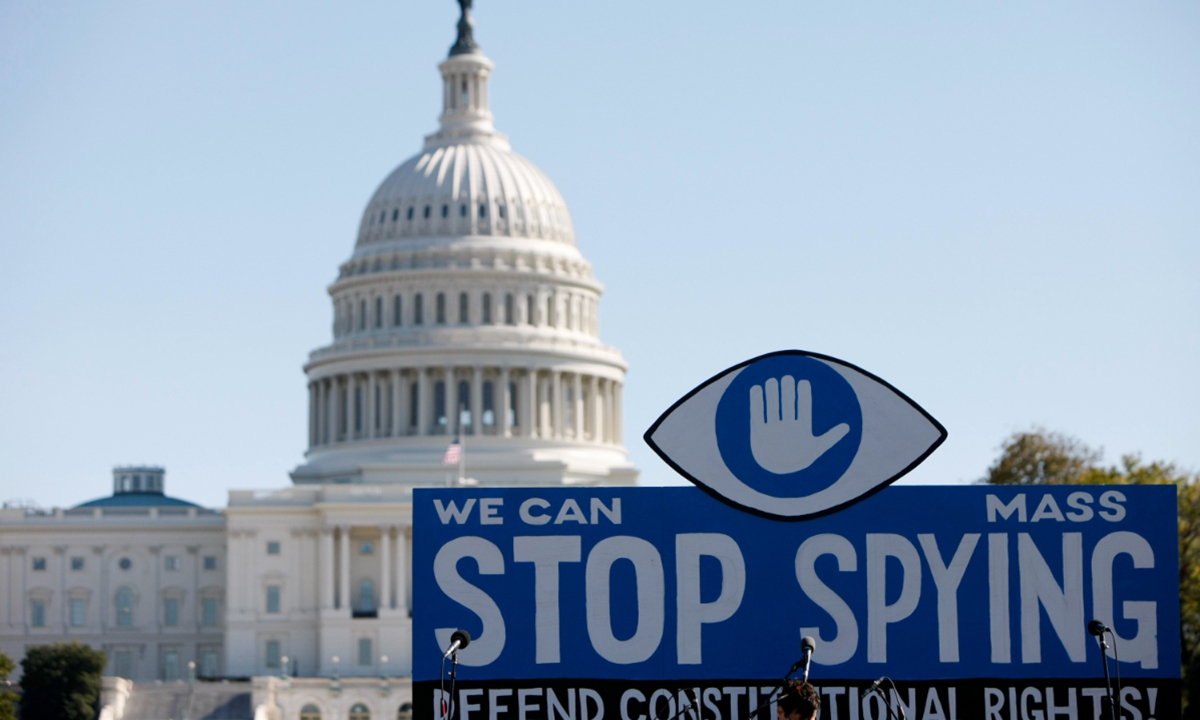







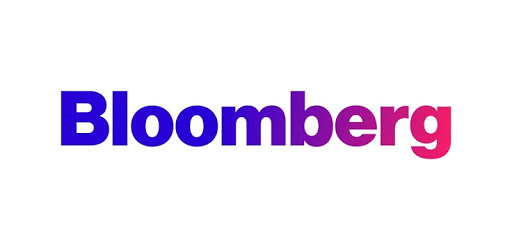


.png)


























.jpg)





.png)














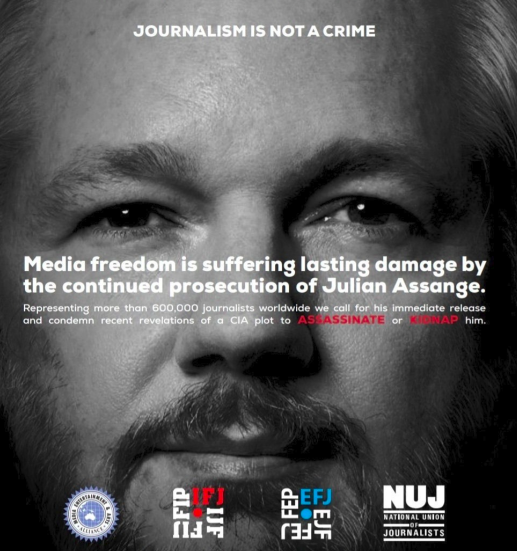




.png)

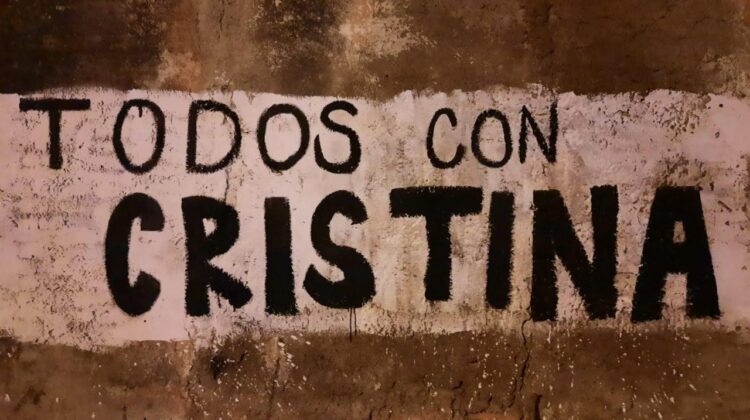



















.png)



.png)


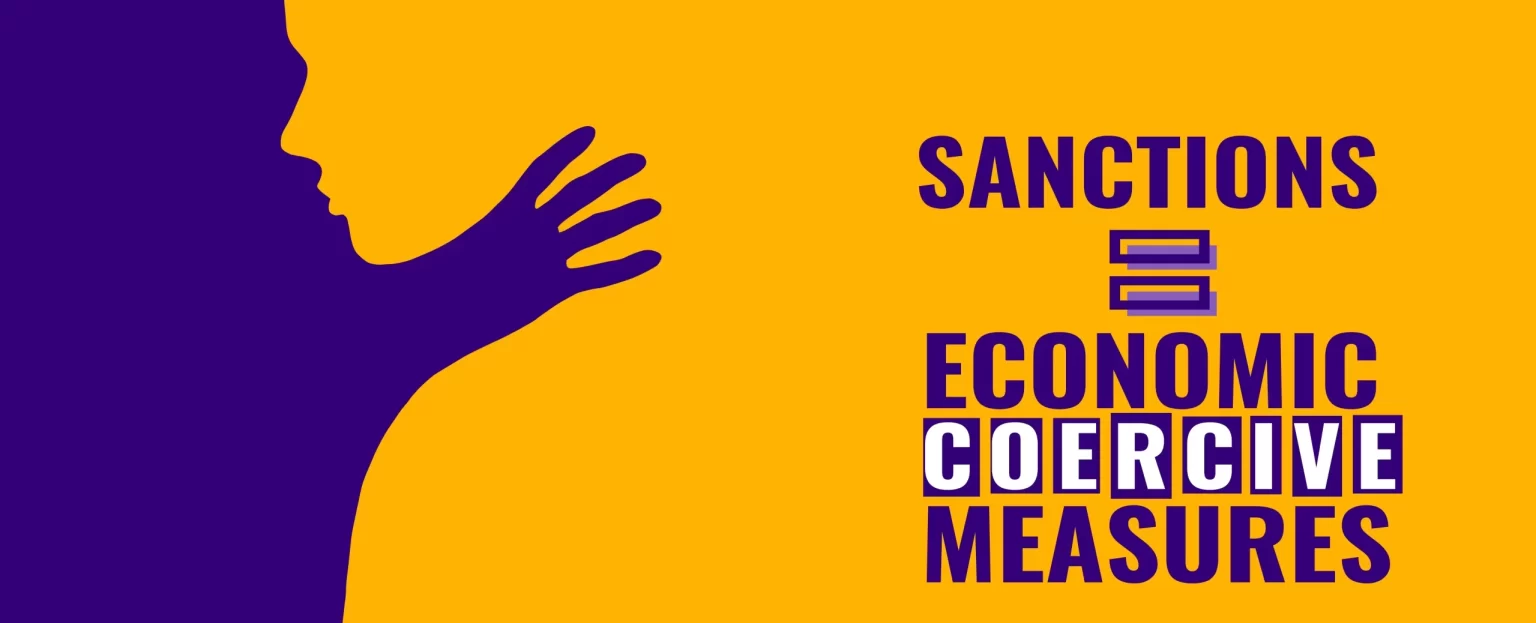
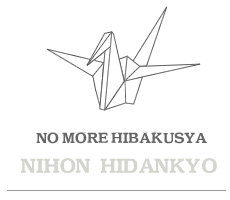
.png)
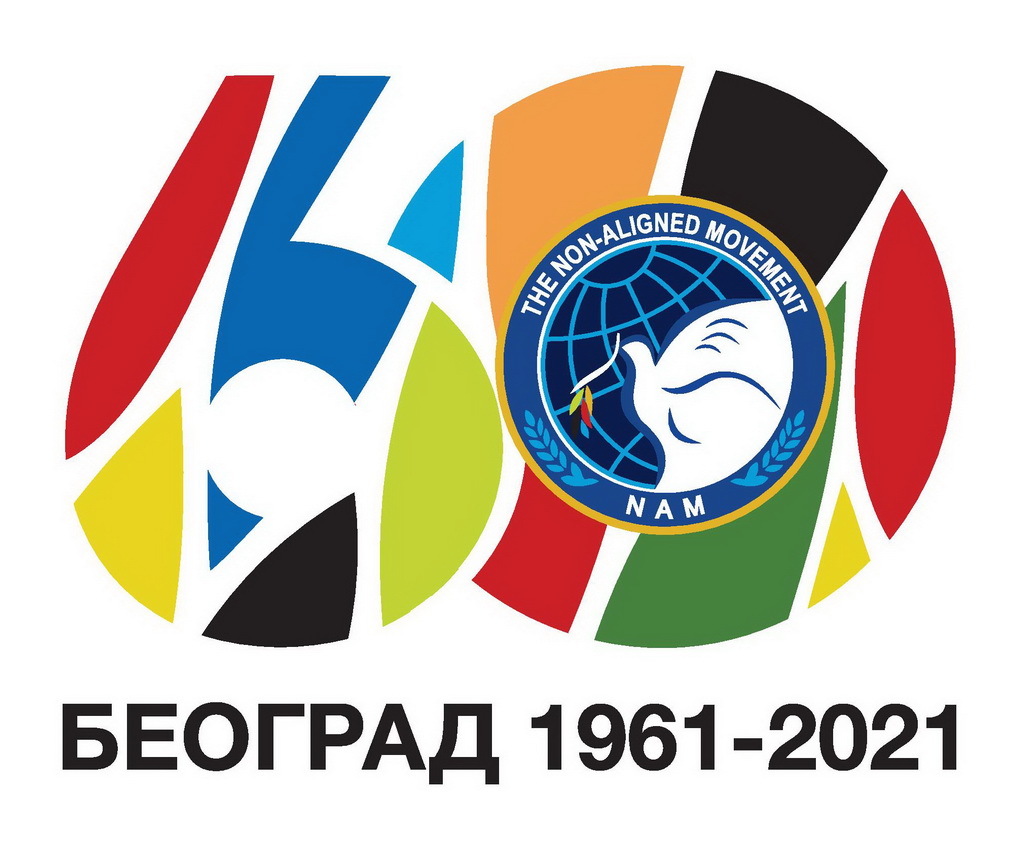




.png)




















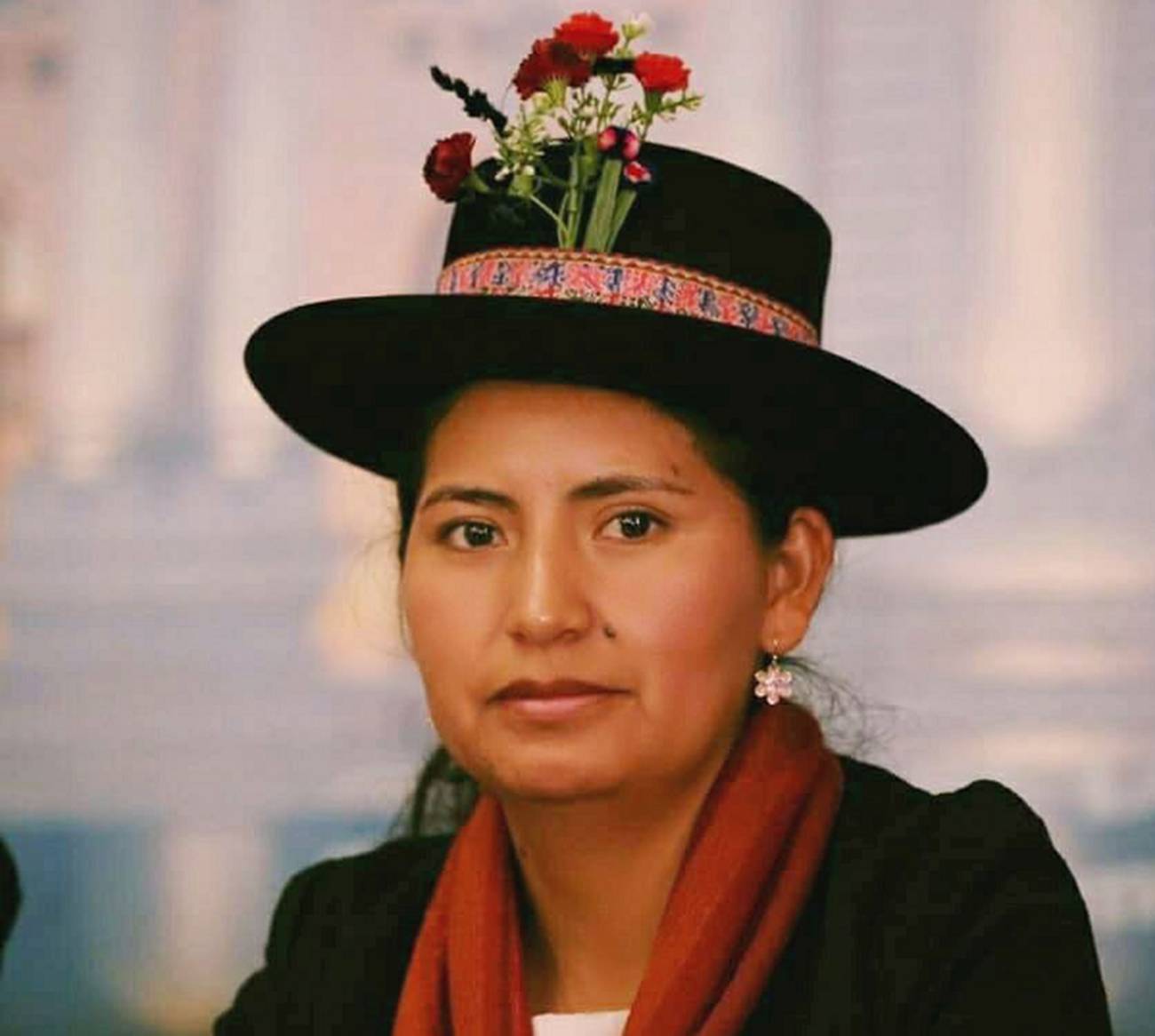








.png)
/regions/2022/04/21/6261763fc435e_logo-candidatecml-page-0001.jpg)



.jpg)

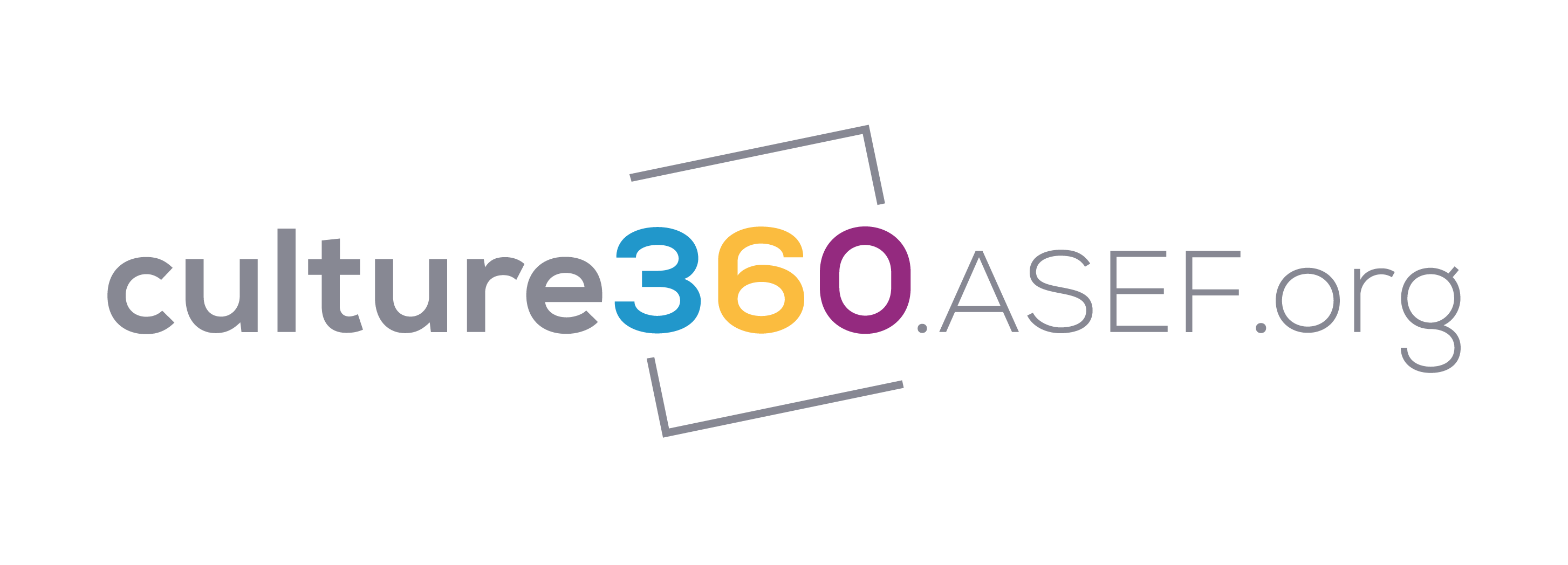

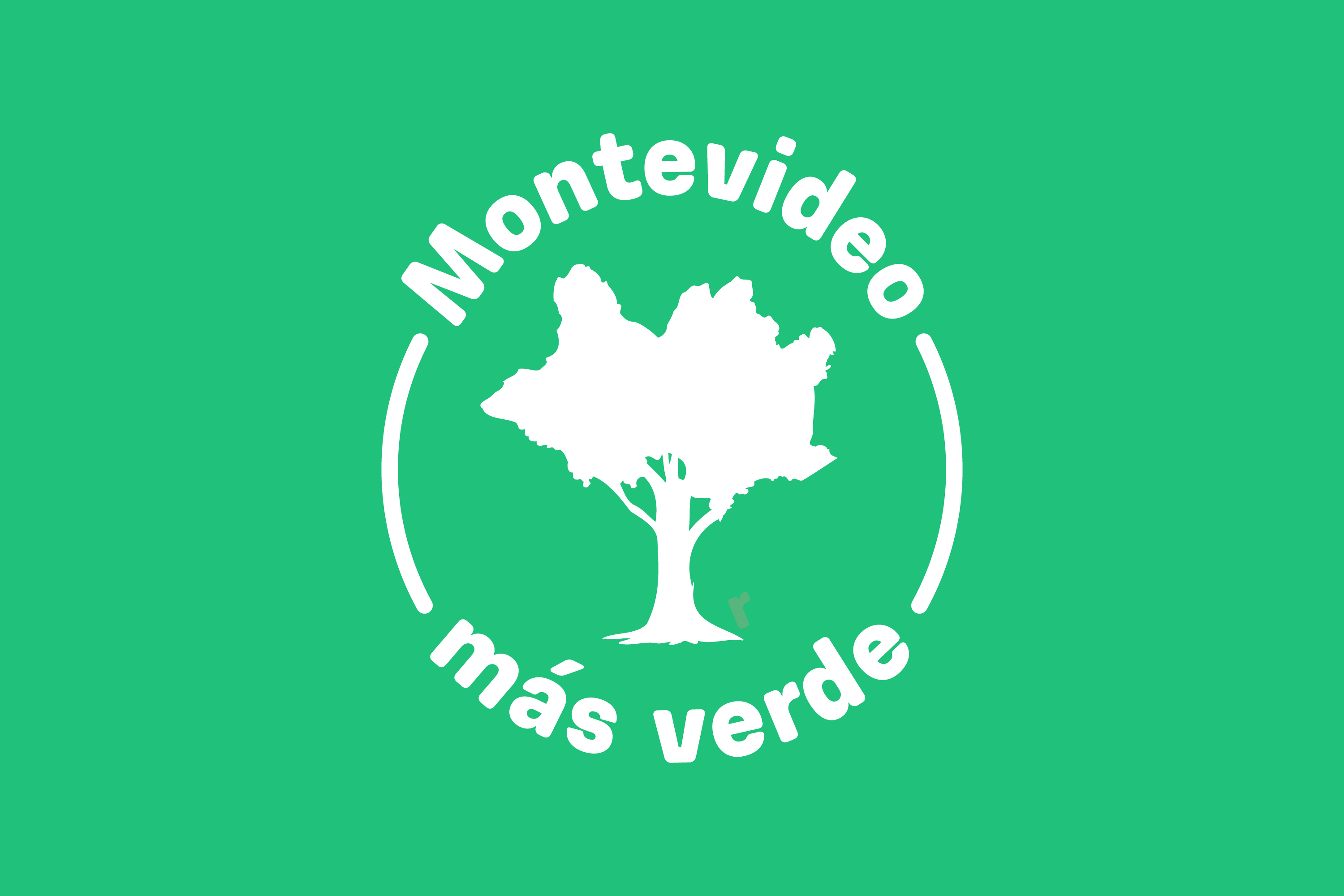











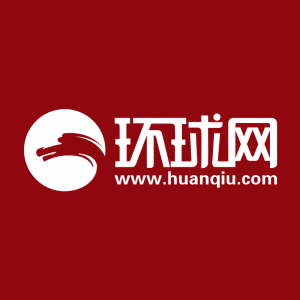


.png)

.png)
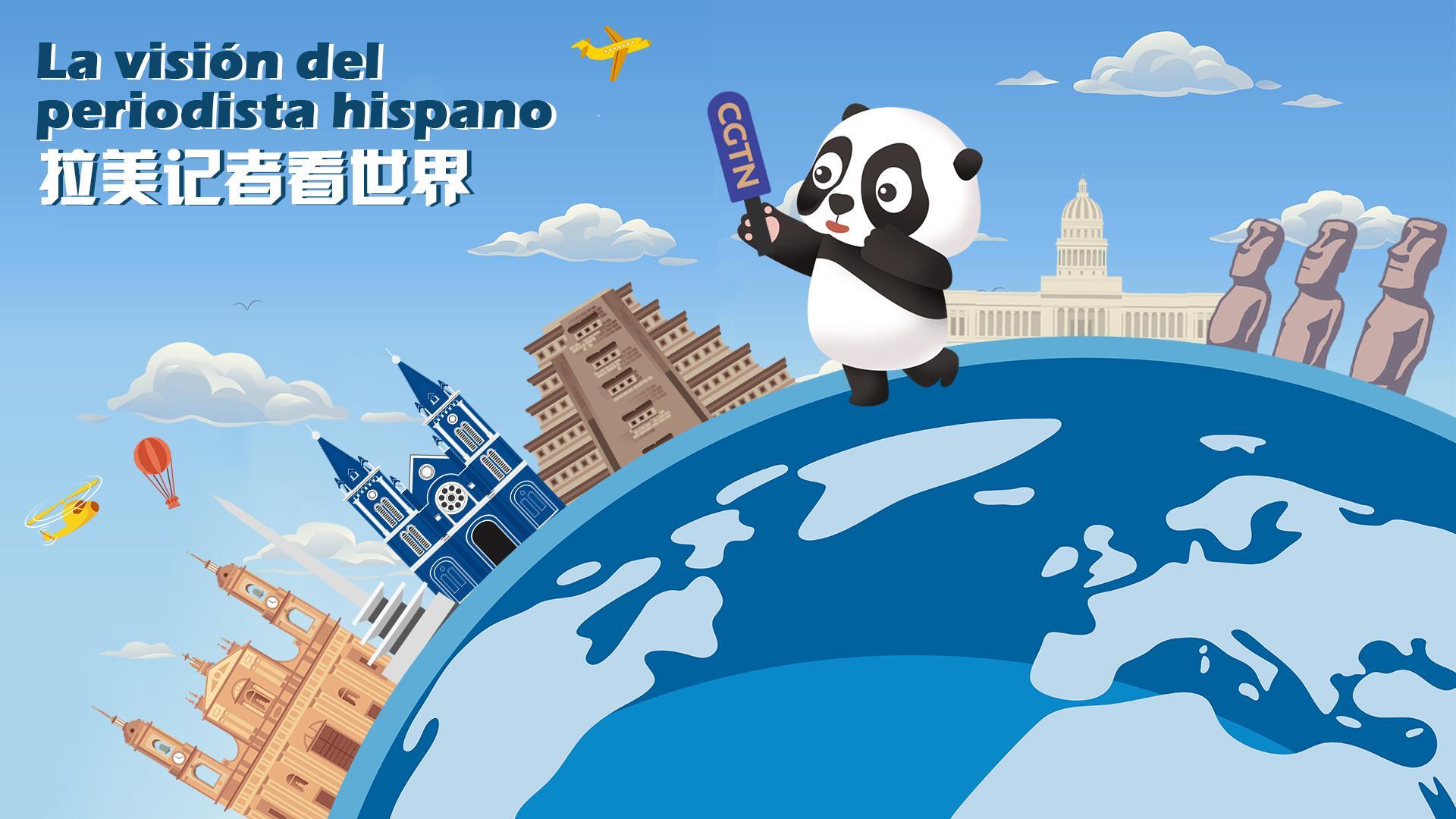
.png)





















































